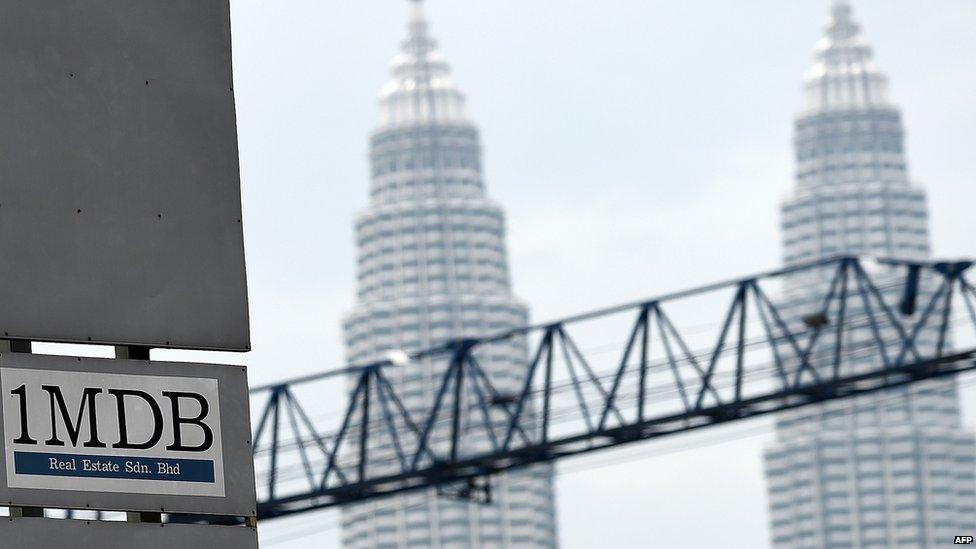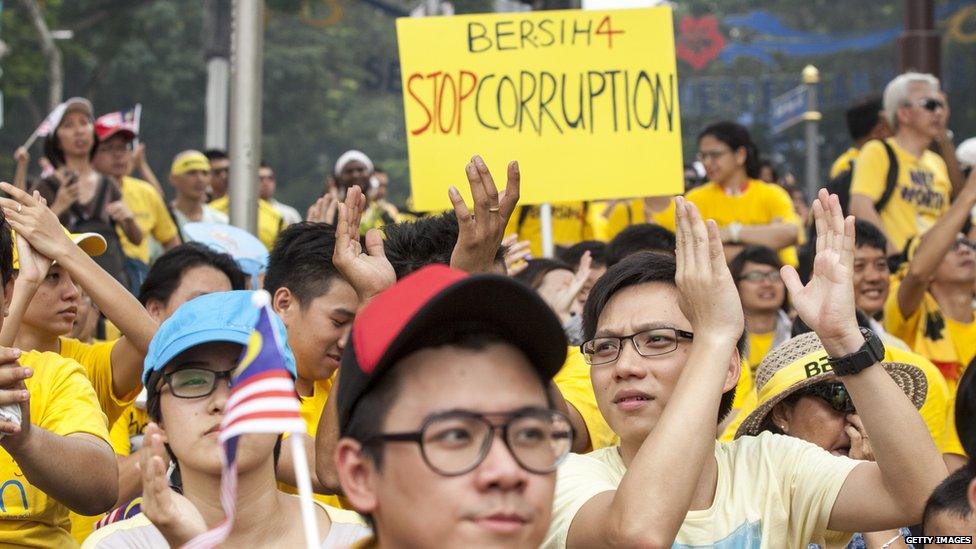1MDB CEO: We are the 'most investigated company'
- Published
- comments
President and Group Executive Director of 1MDB, Arul Kanda Kandasamy, spoke to the BBC's Karishma Vaswani
Arul Kanda, the head of the Malaysian state investment fund 1MDB, external has an impressive track record of restructuring ailing companies and making a profit from them. A former banker, he's worked in the UK and in the Middle East, and has had a string of successes.
So it did seem surprising to me that he would be willing to stake his reputation on turning around the scandal hit fund 1MDB, after it amassed more than $11bn (£7bn) worth of debts.
And what a way to hit the ground running. Within the first six months of him taking on the job, 1MDB was hit by allegations that $700m from companies linked to 1MDB were transferred to Prime Minister Najib Razak's personal bank account.
The claims have triggered investigations by some international authorities including the Swiss.
Both the Prime Minister and 1MDB have denied any wrongdoing and Malaysia's anti-corruption commission said the money was donations from a private donor in the Middle East.
But the questions keep coming - not least from Malaysians themselves who are asking where the money's gone.
Mr Kanda has a ready reply to those who would hold him and the Prime Minister to account.
"1MDB today, through the actions of the government, is now the most investigated company in the country," Mr Kanda told me in his first international television interview.
"Whatever happened in the past is being thoroughly reviewed and investigated".
Restructuring expert
Even before this story broke in July, questions were being asked about the purpose and performance of 1MDB, which has changed auditors twice since 2009.
Malaysia already has a sovereign wealth fund, Khazanah, which makes investments for the country's national development.
1MDB was set up in 2009 by Mr Najib, who chairs its advisory board and also serves as Malaysia's finance minister, with similar ambitions.
The fund borrowed money to buy major real estate and power assets in the country and abroad, with the intention of developing them and turn them into profitable entities.
But it's now in the process of selling off stakes in some of its prized energy assets in an attempt to raise cash and pay down some of its multi-billion dollar debt.

Analysts were concerned that 1MDB's multibillion dollar debt load could threaten Malaysia's financial standing
Mr Kanda stressed 1MDB's financials will be fine.
"The value of assets outweigh value of debt," he told me at their office in Kuala Lumpur. The value of assets can be proven given bids we've received".
Mr Kanda told me that the company would start to see a profit sometime next year, after they've sold off some of their key assets.
But as one opposition party member said to me that any business that has to sell off their key assets to stay alive really doesn't have much to show for itself.
Others in the financial circles have said they don't expect to see 1MDB last beyond next year.
Economic woes
And then there's the politics - never far away from the world of business in Malaysia's intricately connected society.
Since the scandal broke, calls for the prime minister to step down have been growing from protestors, and even from the high profile former Prime Minister Mahathir Mohamad, who still holds a lot of influence in the country.

A widespread protest in August by the 'Bersih' or 'Clean' movement called for Malaysia Prime Minister to step down
This scandal couldn't have come at a worse time for the Malaysian economy. It's been particularly hard hit by the global slowdown and collapse in commodity prices.
Making things worse, the Malaysian ringgit, has lost about 13% of its value this year, making it the worst performing currency in Asia.
Most Malaysians are used to the culture of cronyism and patronage amongst their public officials.
But any hint of mismanagement of public funds - at a time when they're grappling with the soaring cost of living - is likely to lead even higher levels of resentment with their leaders.
With additional reporting by Leisha Chi